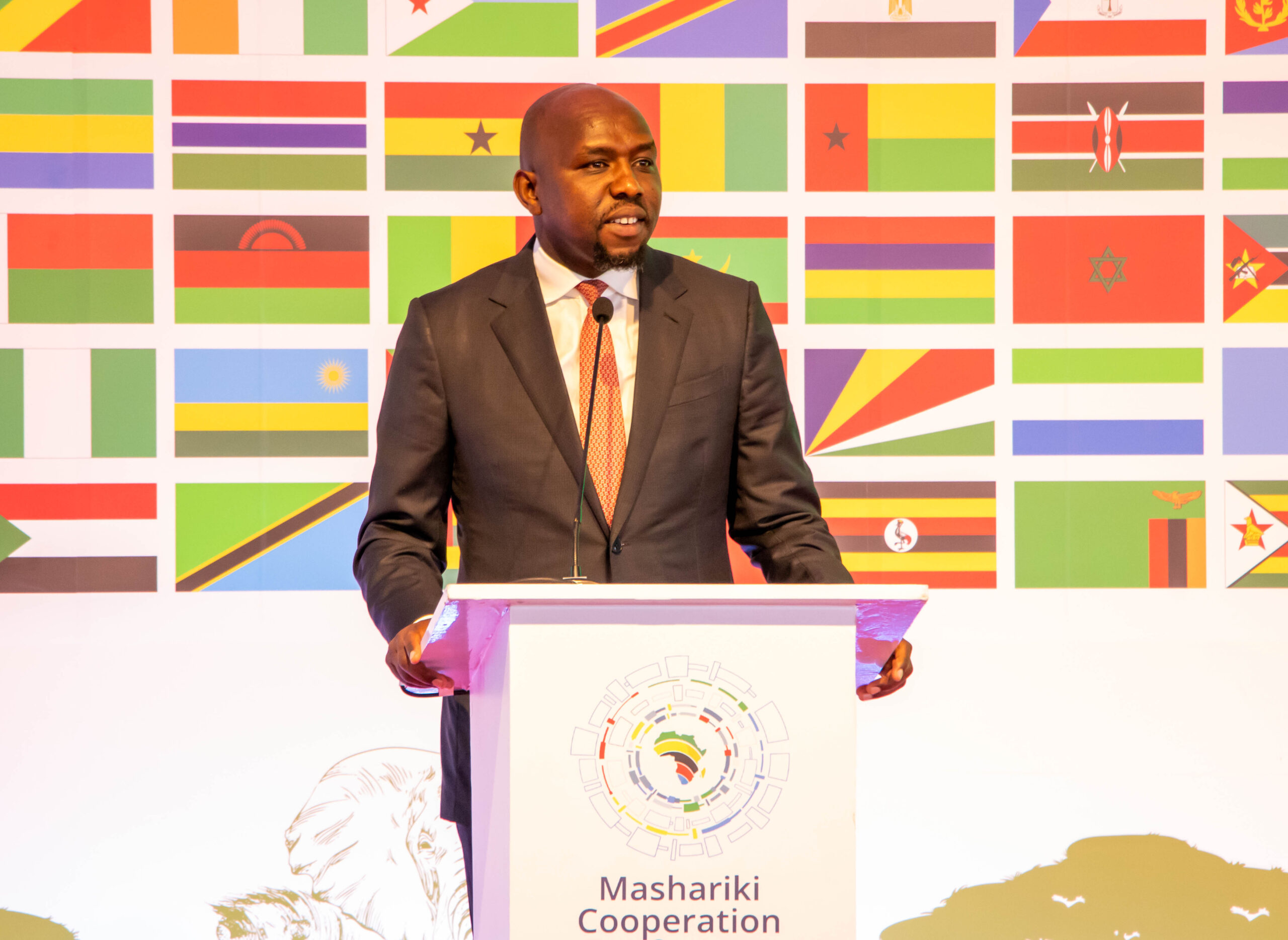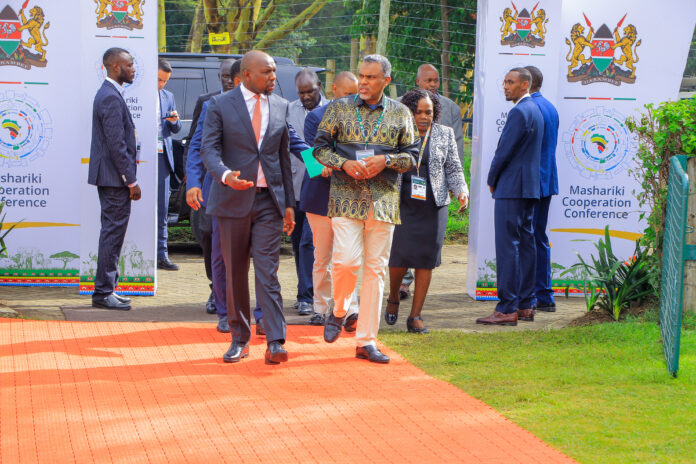|
Getting your Trinity Audio player ready...
|
By Lenah Bosibori
Naivasha, Kenya: Kenya’s Cabinet Secretary for Interior and National Administration, Kipchumba Murkomen, has called on African security agencies to spearhead a technology-driven revolution to counter the growing threats of misinformation and fake news, largely fueled by unregulated social media platforms.
Speaking on Thursday at the 2nd Mashariki Cooperation Conference (MCC) in Naivasha, Murkomen highlighted that Africa continues to grapple with security challenges stemming from right-wing radical extremism, terrorism, transnational organized crime, and climate-induced threats. He stressed that these issues have a significant impact on peace and stability across the continent.
“I want to challenge the security sector to champion and invest in Africa’s technological landscape. This is not without risk, but we have seen how Israel became a technological powerhouse by allowing its military and intelligence sectors to lead the way,” said Murkomen.
He further emphasized the dangers posed by emerging technologies, including artificial intelligence, which can be manipulated to spread disinformation, influence public perception, and escalate cyber threats such as hacking, malware, and cryptocurrency theft.
The conference brought together Chiefs of Intelligence and Security Agencies from across Africa and beyond. Discussions centered on enhancing collective action, intelligence sharing, and cooperation to effectively counter terrorism and transnational organized crime.
 Murkomen highlighted the role of AI in monitoring and regulating digital platforms, stating, “Through artificial intelligence, we can control social media sites and forums in real-time to flag potential terrorist threats and measure public sentiment on critical issues. While Africa lags behind other regions in technological innovation, we are no strangers to these threats.”
Murkomen highlighted the role of AI in monitoring and regulating digital platforms, stating, “Through artificial intelligence, we can control social media sites and forums in real-time to flag potential terrorist threats and measure public sentiment on critical issues. While Africa lags behind other regions in technological innovation, we are no strangers to these threats.”
His sentiments were echoed by Noordin Haji, Director General of Kenya’s National Intelligence Service (NIS), who acknowledged the evolving nature of security threats.
“As global dynamics shift, threats are becoming borderless, leaderless, and unconventional. Africa must enhance cooperation and intelligence-sharing to strengthen its defense mechanisms,” said Haji.
He pointed out that terrorist groups have previously exploited digital platforms to spread propaganda, recruit followers, and radicalize individuals, making it imperative for the continent to develop its own secure technological infrastructure.
South Africa’s Acting Director General of the State Security Agency, Ambassador Nozuko Bam, reinforced the call for Africa to establish its own digital ecosystems to curb the spread of misinformation.
“As a continent, we are big enough to have our own social media platforms that we can easily manage and control to prevent the spread of misinformation,” said Bam.
The conference stressed the urgent need for Africa to develop homegrown technological solutions to bolster security, safeguard public information, and combat the digital threats undermining its stability.
Dr. Irene Mwingirwa, Assistant Director of AI & Cyber Security at Kenya’s National Intelligence Service (NIS), highlighted the challenges posed by SIM card registration during a panel discussion titled Opportunities and Threats for Africa in the Digital Frontier.
She noted that Kenya has a high rate of SIM card registrations, with some individuals owning up to 10 registered SIM cards, making it difficult to track their digital footprint.
“Kenya ranks highly in SIM card registration, with individuals having multiple registered lines, which complicates efforts to monitor online activity,” said Mwingirwa.














